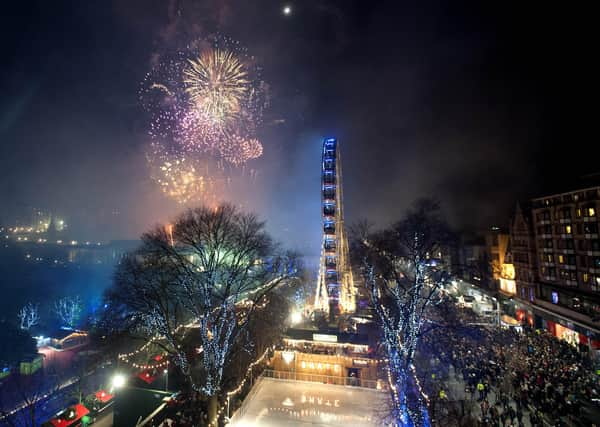Festival could be every four years – Helen Martin


THE Hogmanay street party has been written off, with plans to provide alternative celebrations for Christmas and New Year spread around the city, which would still attract tourists, but might infect locals.
Of course, that may not happen at all if the prediction of a second virus wave over winter, with a peak in January, turns out to be the case.
Advertisement
Hide AdAdvertisement
Hide AdEven worse is the risk of what is described as losing the “world’s festival city” crown, with the summer International Festival, the Tattoo and Fringe being in danger and possibly called off for the second year.
Vaccines may be available by then, but that’s only one of the many factors involved.
If the peak does occur in January, another lockdown would last for months and how would that affect struggling hospitality businesses around the city, arrival flights for tourists, venues, and the finances of performers, organisations, audiences and everyone else?
There’s a chance that the second wave won’t happen and, apart from financial pressures that already exist, a limited or restricted Festival and Fringe, perhaps with social-distancing and face coverings, could go ahead.
Advertisement
Hide AdAdvertisement
Hide AdOne problem either way is that organisation of the events for 2021 would have to start soon. And how can that take place if we don’t have any knowledge of what will happen over the next 12 months?
Across the world including the UK, economies have been hit, companies have folded, jobs have been lost, taxes are expected to rise, and in a nutshell, most people have less money.
All this has been extremely tough for Edinburgh where much of the economy and wealth was focused on tourism, which many people such as me would refer to as “over-tourism”.
Back at the end of April, I suggested in a column that the dependence on tourism and festivals had been successful for decades, but with global contagion, international tourism could be a dodgy policy for the city.
Advertisement
Hide AdAdvertisement
Hide AdNo-one would want tourism ruled out, but perhaps limited. And what we seriously needed was attempts at coming up with new plans for alternative city incomes – which wouldn’t be easy but might be necessary.
Instead, everything has been concentrated on restoring, and maintaining as much as possible, all these huge events that have had to be cancelled, as if there was a hope that life could hop back to “normal”.
There are other cities and areas around the world which thrive on tourism, though they don’t have international festivals and vast events that agonise their citizens, damage their land and dominate.
We have classic and historical architecture, a beach, museums, a castle, a palace and a royal park, a Parliament, theatres, high-rated restaurants and bars, local tours, and perhaps about 15,000 rooms for tourists. We have events such as the Royal Highland Show, football and rugby, loads of golf courses, lovely rural walks around the city and easy transport to places such as South Queensferry, East Lothian, Fife and St Andrews. All of these benefit local businesses.
Advertisement
Hide AdAdvertisement
Hide AdWe are building up our film industry, we have life sciences, renewable energy, universities. . . plans to build up more industries would be ideal.
Of course, everything is affected by coronavirus and some pandemic scientists feel more may follow in this modern world.
If the Festival, Fringe and Hogmanay are cancelled, it’s a major loss, so looking for other sources of income is smart. Perhaps holding these every two years, or perhaps every four like the Olympics would make them even more “special” to tourists and relieve locals.
It could also help avoid planning them every year, without even the certainty that they’ll happen.
A message from the Editor:
Advertisement
Hide AdAdvertisement
Hide AdThank you for reading this article on our website. While I have your attention, I also have an important request to make of you.
The dramatic events of 2020 are having a major impact on many of our advertisers - and consequently the revenue we receive. We are now more reliant than ever on you taking out a digital subscription to support our journalism.
Subscribe to the Edinburgh Evening News online and enjoy unlimited access to trusted, fact-checked news and sport from Edinburgh and the Lothians. Visit www.edinburghnews.scotsman.com/subscriptions now to sign up.
By supporting us, we are able to support you in providing trusted, fact-checked content for this website.
Joy Yates
Editorial Director
Comment Guidelines
National World encourages reader discussion on our stories. User feedback, insights and back-and-forth exchanges add a rich layer of context to reporting. Please review our Community Guidelines before commenting.